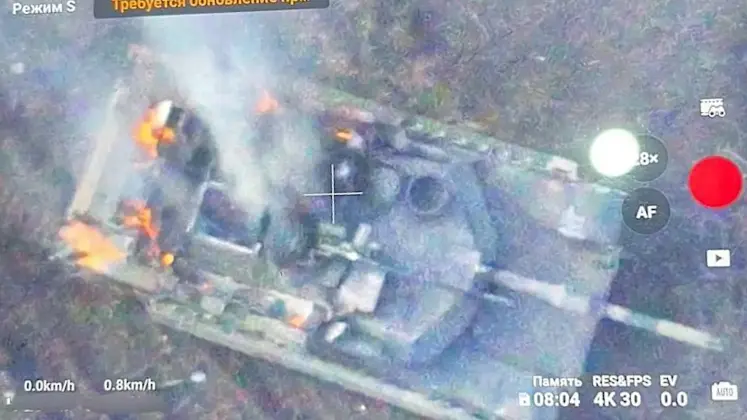French President Emmanual Macron has raised the possibility that NATO members could make a more overt deployment of ground forces to Ukraine, stressing that Western powers needed to ensure that Russia were not victorious in the ongoing conflict. “There’s no consensus today to send, in an official manner, troops on the ground. But in terms of dynamics, we cannot exclude anything. We will do everything necessary to prevent Russia from winning this war,” the French leader stated on February 26. France hosted a summit of European states supporting Ukraine, amid concerns over the growing fallout from a freezing of U.S. funding for the Ukrainian war effort. Macron stated that European governments were in agreement that they needed to do more to ensure that Russia did not prevail.
Macron stressed that Western states which say “never, ever” today to direct troop deployments to Ukraine were the same ones that had previously ruled out escalating military aid, only to later change their positions to supply combat aircraft and cruise missiles. He strongly implied that they could thus similarly come to support a significant military intervention in the country. “Two years ago, a lot around this table said that we will offer helmets and sleeping bags, and now they’re saying we need to do more to get missiles and tanks to Ukraine. We have to be humble and realize that we’ve always been six to eight months late, so we’ll do what is needed to achieve our aim,” he stated. “We are determined to do everything necessary for as long as necessary. That is the key takeaway from this evening,” the president concluded. Averting the necessity for Western militaries to deploy in greater force to Ukraine has notably been a central argument by American lawmakers calling for increased funding for the Ukrainian war effort.
Western countries have notably already made extensive ground force deployments to Ukraine, including both contractors paid by Western governments as well as active duty personnel. British combat troops have been deployed near the frontlines for high risk operations from the war’s initial weeks, which was confirmed by the head of the British Royal Marines in December 2022. Russian forces have also reported capturing active duty German personnel deployed to support operations of large quantities of Leopard tanks supplied to the country. Western personnel are also widely believed to be operating other more complex assets such as Patriot missile systems which were delivered far more quickly than the time required to train Ukrainian personnel to operate them. European foreign fighters in Ukraine were notably specifically targeted in a Russian missile strike on January 16, causing at least 80 casualties 60 or more of which were killed. Russian state media reported that these personnel were “highly trained specialists who work on specific weapons systems too complex for the average Ukrainian conscripts,” which “put some of the most lethal and long-range weapons in the Ukrainian arsenal out of service until more specialists are found” to replace them.
Macron’s statement comes as Ukrainian forces have faced increasingly serious setbacks, and comes days after massive casualties led to a chaotic retreat from the strategically located town of Avdiivka. It has also coincided with the first confirmed combat loss of a newly supplied American M1A1 Abrams tank just days after the class made its first frontline deployment. American Bradley fighting vehicles and German Leopard main battle tanks, which have seen frontline combat since June, have taken tremendous losses which Ukraine’s Western supporters have bene unable to replenish, with over 60 Bradleys destroyed in 2023 at a conservative estimate. Western sources on the ground in Ukraine have reported with growing frequency and seriousness that the combat capability of even Ukraine’s most elite frontline units has been very seriously undermined by severe and worsening equipment shortages. For the equipment which has remained Pentagon reports have highlighted the country’s inability to maintain it, with the situation for maintenance of European equipment being significantly more serious still. Issues with equipment have been supplemented by similarly serious manpower shortages, as frontline units have been reported by Ukrainian sources to have taken tremendous casualties times at 80-90 percent of their fighting strength. Ukrainian personnel speaking to Western media have widely cited this as a leading factor undermining their ability to continue fighting.


